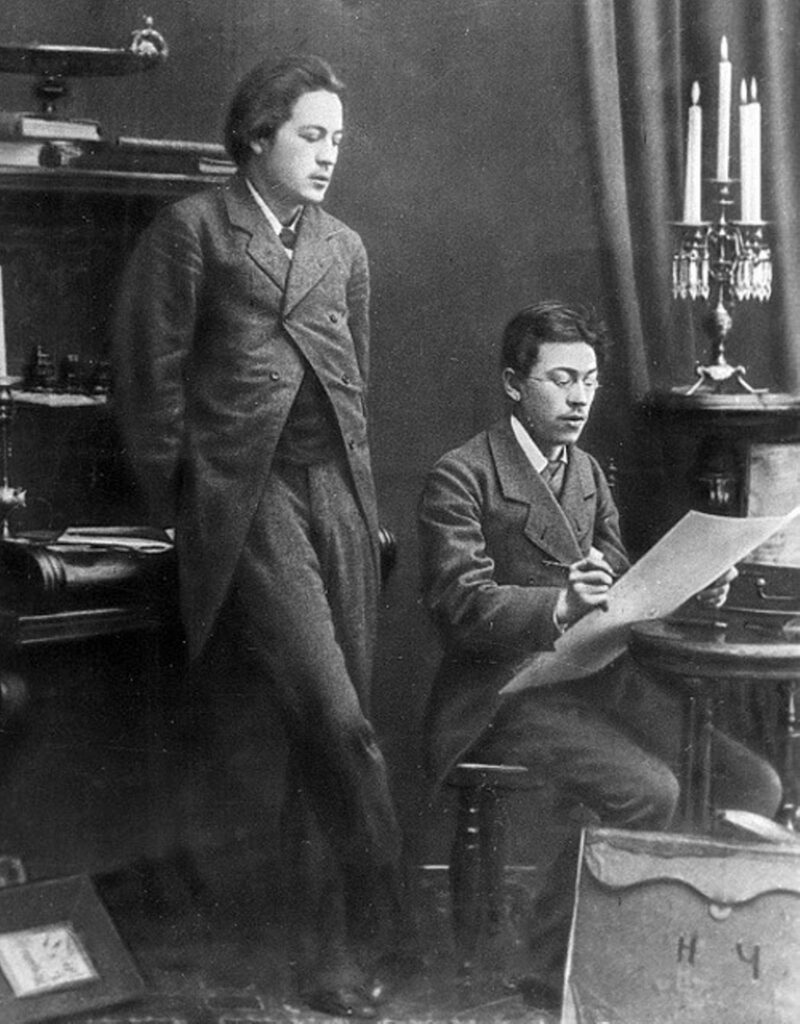
Russian scholar Chekhov more than 100 years ago wrote a letter to his brother Nikolai, a talented artist, but weak in character and suffering from unrestrained drunkenness.
Anton Pavlovich Chekhov, knowing the weaknesses of his brother, always worried about him, was upset because of Nikolai’s disregard for his artistic gift. He wrote: «A strong Russian talent is dying, and not for a penny.»
He came up with an emotional, frank letter that we certainly need to read. We, of course, may not be alcoholics living with bedbugs, but in general, many of us, like Nikolai Pavlovich, are mired in self-pity, belittle talents and stand in the pose «no one understands me.»
At the same time, making it worse for yourself and for your loved ones, who care. Be sure to read this letter. The great classic of our literature can teach us more.

Letter to his brother (Moscow, 1886)
“You often complained to me that you “were not understood!”Even Goethe and Newton did not complain about this … Only Christ complained, but he spoke not about his“I”, but rather about his teachings … You are perfectly understood. ..
If you do not understand yourself, then it is not the fault of others…I assure you that, as a brother and a person close to you, I understand you and sympathize with you from the bottom of my heart … I know all your good qualities like the back of my hand; I appreciate them and treat them with the deepest respect.
If you want, to prove that I understand you, I can even list these qualities. In my opinion, you are kind to rags, generous, not selfish; you share your last penny, sincere; you are alien to envy and hatred, simple-minded, you feel empathy for people and animals, not malicious or unforgiving, trusting..
You are gifted from above with what others do not have: you have talent. This talent puts you above millions of people, because on earth there is only one artist in 2,000,000…
Talent puts you in an isolated position: whether you are a toad or a tarantula, then you would be respected even then, for everything is forgiven to talent. You have only one drawback.
It contains your false soil, your grief, and your intestinal catharsis. This is your extreme bad manners. Apologies, please, but veritas magis amicitiae … The fact is that life has its own conditions …
To feel at ease in an intelligent environment, in order not to be a stranger among her and not to be burdened by it yourself, you need to be well-educated … Talent has brought you into this environment, you belong to her, but … you are drawn from her, and you have to balance between the cultured public and the residents vis-a-vis.
The bourgeois flesh, which grew on rods, near the Rhine cellar, on handouts, affects. Defeating her is difficult, terribly difficult.
Well-mannered people, in my opinion, must meet the following conditions:1) They respect the human personality, and therefore are always condescending, gentle, polite, compliant …
They do not rebel over a hammer or a missing rubber band; when living with someone, they don’t do it a favour, and when they leave, they don’t say: ‘no-one can’t live with you!’ They forgive noise, cold, and sharpness, and the presence of strangers in their home…
2) They are not compassionate towards beggars and cats alone. They are compassionate with their souls to those suffering what you cannot see with the nakedeye…
3) They respect other people’s property, and therefore pay their debts.4) They are sincere and afraid of lies like fire. They do not lie even in trifles. Lying is offensive to the listener and vulgarizes the speaker in their eyes. They do not show themselves off, behaving in the street just like at home, not sending dust into the eyes of the youths …
They are not talkative and do not speak with frankness when they are not asked … Out of respect for other people’s ears, they are more often silent.5) They do not destroy themselves in order to evoke sympathy and help from another.
They do not play on the strings of other people’s souls, so that in response they sigh and nurse them. They do not say: ‘no-one understands me!’…6) They are not busybodies. They are not interested in such fake diamonds as meeting celebrities, the delight of someone they meet in Salon’e, fame for porter…
7) If they have talent, they respect it. They sacrifice for it peace, women, wine, fame…8) They cultivate aesthetics in themselves. They cannot sleep in their clothes, see cracks with roaches on the wall, breathe trashy air, walk on the spattered floor, and eat from a kerosene stove.
They try to tame and refine the sexual instinct as much as possible … Brought up in this respect they are not so kitchen mannered. What they need from a woman is not a bed, not a horse sweat, not a mind, which is expressed in the ability to cheat with a false pregnancy and lie tirelessly … They, especially artists, need freshness, grace, humanity …
They do not crack vodka in passing, do not sniff cabinets because they know they are not pigs.And so on. Such are the manners … In order to educate and not stand below the level of the environment in which one fell, it is not enough to read only Pickwick and memorize a monologue from Faust.
It is not enough to get on a cab and go to Yakimanka in order to fleefrom there in a week…Here we need continuous day and night work, eternal reading, study, willpower …
Every hour is precious here … Trips to Yakimanka and back will not help.You must get up and turn the other way… Come to us, ditch the bottle of vodka and lie down to read … at least Turgenev, whom you have not read …”
Svetlana Maksimova












